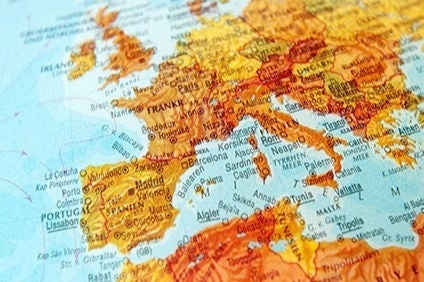
Following last week’s European Council Summit and its conclusions on the measures to tackle the energy crisis, Euratex expressed concern over the potential loss of competitiveness and the EU’s inaction on the energy crisis, and Chinese and US subsidies to domestic industry.
Euratex says the reasons for the sharp decline in competitiveness is twofold: energy costs in Europe are six times higher than in the US, China and neighbouring countries; and Europe’s main international competitors and trade partners have developed comprehensive state-aid frameworks for their domestic industry despite not being affected by the energy crisis at all.
“At present, many textiles and clothing companies are producing at net loss or have shut down production. The industrial conditions have worsened in such a way that there is no business case to invest in Europe or buy products produced or processed in the EU. It is only the sense of responsibility of our entrepreneurs towards the European society that is keeping the plants and production running.”
According to Euratex, recent trade data already indicates a loss of global competitiveness: imports to the EU have grown 35% year-to-date in 2022. It is expected that energy prices will remain high and volatile, “opening the door for imports to gain substantial market shares in the EU”.
If the status quo is maintained, Euratex says the EU will not be able to recover its competitive position on the global business stage, and will fail its plans to reach zero-net emissions and achieve circularity.
Euratex is calling on the EU political leaders in the Commission, in the European Council and in the national capitals to:

US Tariffs are shifting - will you react or anticipate?
Don’t let policy changes catch you off guard. Stay proactive with real-time data and expert analysis.
By GlobalData- Raise the ambition and adopt a comprehensive approach at EU level: energy, state-aid and trade policy must be brought together in a single strategy with concrete emergency solutions and with a clear SME dimension.
- Let all hesitations aside and adopt a meaningful price cap on natural gas wholesales, that should be ideally no higher than 80 euro/MWh. In parallel, it should also be ensured that electricity prices are brought to a sustainable price level.
- Change the European posture on state-aid, even temporarily. An ambitious plan of investments and state-aid in green technologies to support the industrial transition should be rolled out.
“Such a plan, however, should not be conceived as a retaliation against our most necessary and like-minded trade partners, Euratex adds. “Access to finance and markets must be safeguarded for all those actors who are capable and willing to invest in Europe, on the basis of reciprocity. In these challenging times for geopolitical stability, ensuring strong trade ties with our traditional allies and partners is of utmost importance. The roll-out of an investment and state aid plan should not interfere, but rather support, the dialogue with the US (and other partners) and the deepening of our trade and investment partnership.”



